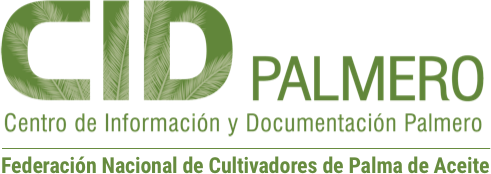| dc.creator | International Planters Conference on Management for enghanced Profitability in Plantations | |
| dc.creator | Chung Gait Fee | |
| dc.creator | Ganapathi, Nathan | |
| dc.creator | Ho, Cheng Tuck | |
| dc.creator | Khairudin, Hashim | |
| dc.creator | Liau, Siau Suan | |
| dc.creator | Ong, Guan Leong | |
| dc.creator | Pow, Kam Wah | |
| dc.creator | Sim, Say Cheong | |
| dc.date | 1994. | |
| dc.description | Oil palm is now the most widely planted plantation crop in Malaysia. Considerable management imputs including correct crop protection practices are necessary to ensure high yield and good profits from oil palm plantations. The main objectives of crop protection are firstly to reduce crop losses and sencondly to reduce costs of control practices. Rats can cause substantital losses to youn and mature plantings. baiting with anticoagulant wax-bound baits has been widely practised to minimise local rat populations and thereby protect young palms in the field or prevent crop losses in mature plams. Rodenticide resistance, change in rat species, baiting large population size, effect of labour shortage on rat baiting and the use of bharn owl for biological control are discussed. Several insect pests require regular attention though their apprearances show no definite pattern. Leaf eating caterpillars including bagworms and nettle caterpillars have to be monitored and early control implemented as and when required. The recent changes in agronomic practices especially large scale EFN mulching/disposal and replanting techniques e.g. zero burning and underplanting, have resutled in more rhinoceros beetle damage on your palms. Cockchafer teetles e..g. Adoretus spp and Apogonia spp. have become important pests of immature oil palm in certain areas. Although chemical control is standard pest control technique, biological control and environmental spects will be included. In view of the large hectarage that can be affected, mechanisation of pests control imputs becomes essential to off-set the constraint caused by labour shortage. In general, oil palms in Malaysia are relatively free from diseases. Plant quarantine therefore helps to prevent the accidental introduction/establishment of exotic diseases e.g. vascular wilt disease. Basal stem rot (BSR) caused by Ganoderma boninenese is the most serious problme in some locations. Control of BSR is centred around sanitation practices. Tradicionally. ground cover management includes planting of legume cover crops and practising selective chemical weeding to prevent and minimise competition from many weed species. With a wider range of weedicides available chemical weed control has become more refined. Recent developments in weed succesion, cost-effectiveness, weedicide selection, phytotoxicity and application techniques are discussed. | |
| dc.description | Oil palm is now the most widely planted plantation crop in Malaysia. Considerable management imputs including correct crop protection practices are necessary to ensure high yield and good profits from oil palm plantations. The main objectives of crop protection are firstly to reduce crop losses and sencondly to reduce costs of control practices. Rats can cause substantital losses to youn and mature plantings. baiting with anticoagulant wax-bound baits has been widely practised to minimise local rat populations and thereby protect young palms in the field or prevent crop losses in mature plams. Rodenticide resistance, change in rat species, baiting large population size, effect of labour shortage on rat baiting and the use of bharn owl for biological control are discussed. Several insect pests require regular attention though their apprearances show no definite pattern. Leaf eating caterpillars including bagworms and nettle caterpillars have to be monitored and early control implemented as and when required. The recent changes in agronomic practices especially large scale EFN mulching/disposal and replanting techniques e.g. zero burning and underplanting, have resutled in more rhinoceros beetle damage on your palms. Cockchafer teetles e..g. Adoretus spp and Apogonia spp. have become important pests of immature oil palm in certain areas. Although chemical control is standard pest control technique, biological control and environmental spects will be included. In view of the large hectarage that can be affected, mechanisation of pests control imputs becomes essential to off-set the constraint caused by labour shortage. In general, oil palms in Malaysia are relatively free from diseases. Plant quarantine therefore helps to prevent the accidental introduction/establishment of exotic diseases e.g. vascular wilt disease. Basal stem rot (BSR) caused by Ganoderma boninenese is the most serious problme in some locations. Control of BSR is centred around sanitation practices. Tradicionally. ground cover management includes planting of legume cover crops and practising selective chemical weeding to prevent and minimise competition from many weed species. With a wider range of weedicides available chemical weed control has become more refined. Recent developments in weed succesion, cost-effectiveness, weedicide selection, phytotoxicity and application techniques are discussed. | |
| dc.language | ng | |
| dc.publisher | Kuala Lumpur : ISP, | |
| dc.subject | Control biológico | |
| dc.subject | Control químico. | |
| dc.subject | Costos. | |
| dc.subject | Ganoderma. | |
| dc.subject | horugas | |
| dc.subject | Plagas. | |
| dc.subject | Pudrición de estípite | |
| dc.subject | Rata. | |
| dc.subject | Palma de aceite | |
| dc.title | Crop protection practices in oil palm plantations. | |
| dc.type | text | |
| dc.identifier.url | https://catalogo.fedepalma.org/cgi-bin/koha/opac-detail.pl?biblionumber=17642 | |


